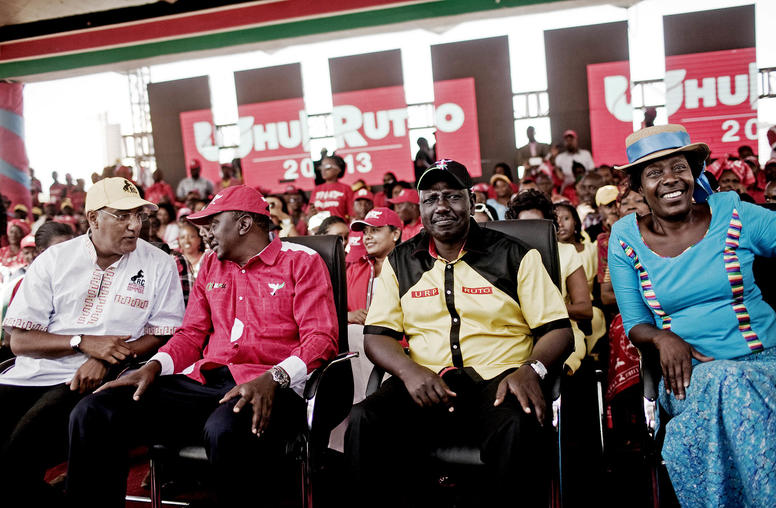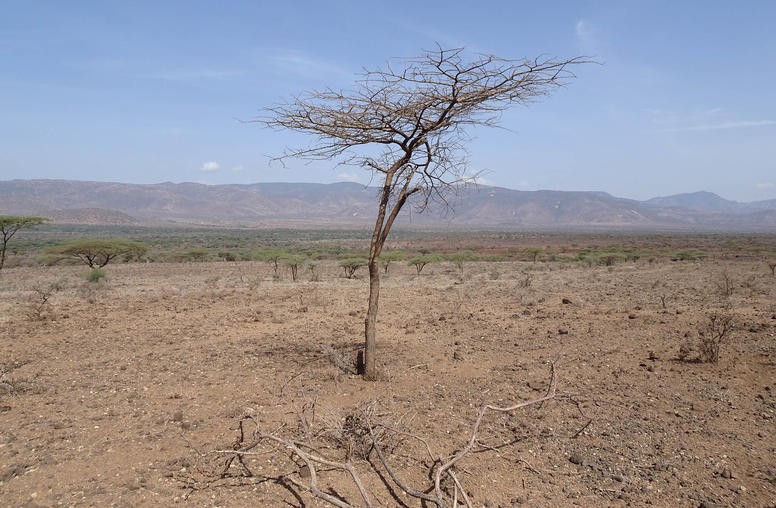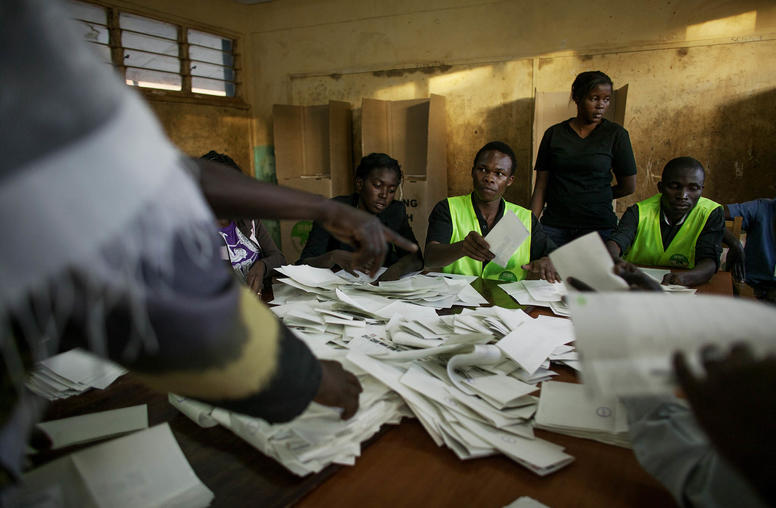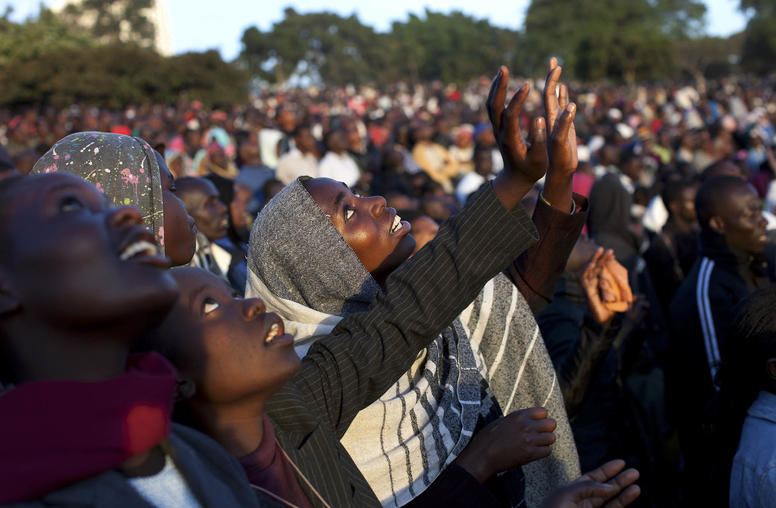Kenya's Elections: What's Next?
USIP’s Jacqueline Wilson discusses the recent Kenyan elections and how the country can continue to mend rifts from the 2007 violence.
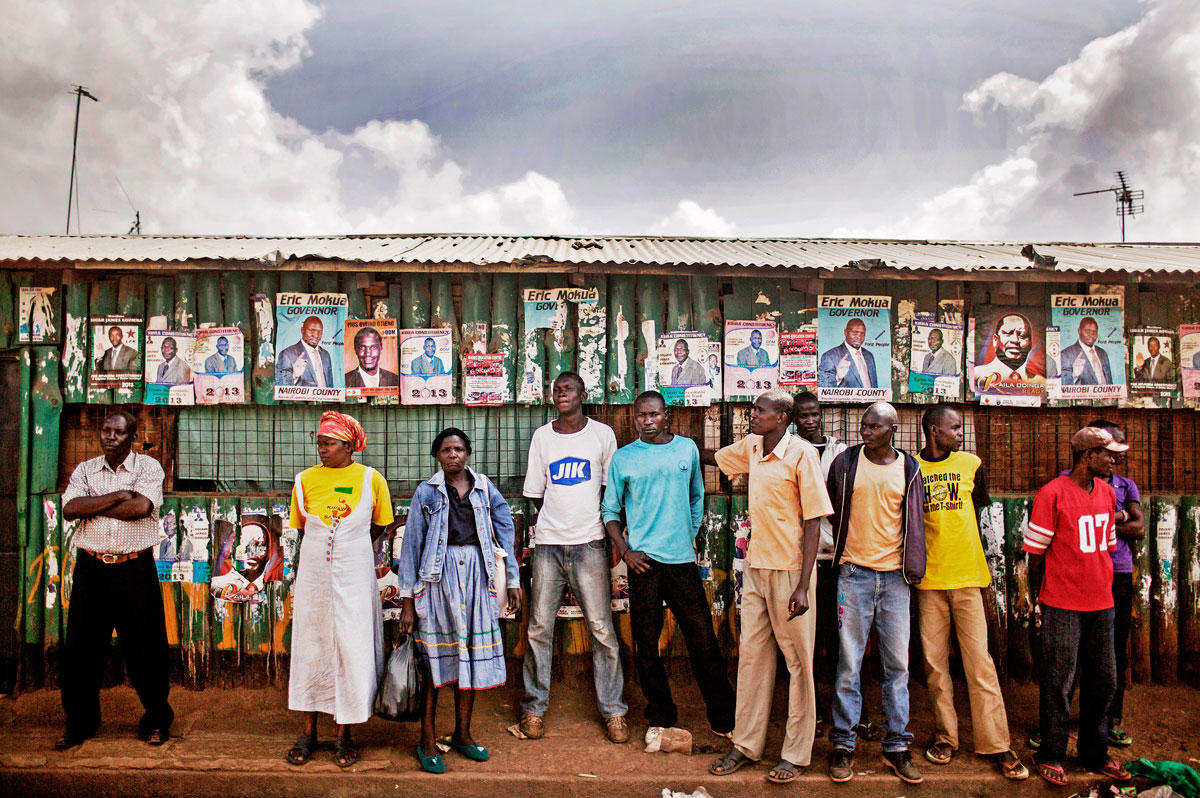
What do you make of the election results?
Kenyans should rightly be proud of their generally peaceful democratic process despite numerous challenges and obstacles. Importantly, both coalitions of candidates, including The National Alliance party led by Uhuru Kenyatta, who ostensibly won by a razor-thin margin, and Raila Odinga’s Orange Democratic Movement (ODM) coalition, have indicated to their supporters that any reaction to the results should be peaceful, and for ODM that they intend to pursue legal challenges to the process through the courts. I was watching the reports on Uchaguzi, the crowd-sourcing platform that gathered reports throughout the election from Kenyans around the country, and the excitement of reports that things were peaceful at this and such polling station was tangible! In general, international and domestic observers indicate a mostly free and fair election. There were pockets of violence and intimidation, and the technological glitches will need to be better understood, but for the most part it seemed aspirants and voters respected the legitimacy of the process.
What does this suggest about the country’s post-conflict process?
A free, fair, and mostly peaceful election is a wonderful step forward for Kenyans to move beyond the 2007-2008 violence, which has haunted Kenyans in so many ways. There is great hope for the new constitution and for transformation of Kenyan institutions such as the judiciary and the police. There is also tremendous optimism about the potential impact of devolution to 47 new counties, with new elected positions and new governance authorities (including control of sizeable budgets). Yet there remains work to be done. Kenyans are still displaced from 2008, and the unresolved underlying grievances about land must be addressed, though this is an exceedingly challenging problem. It also appears many Kenyans still voted along ethnic lines. The recent presidential debates is a step toward issues-based voting, an important indicator of a more mature democracy.
However, those positive steps could be overshadowed by the upcoming trials of President-Elect Kenyatta and Vice President-Elect William Ruto before the International Criminal Court. Kenyatta is scheduled to appear at The Hague in July, while Ruto will begin trial on May 28. The reaction to that process, both in Kenya and beyond, is critical. Whether Kenya remains in the Rome statute or decides to withdraw, Kenyans still need to understand that they will have their highest elected officials on trial in The Hague while serving in office, and that the results of those trials could have international repercussions.
Now that the election is over, what steps should the country take to continue the post-conflict recovery process? How can Kenya address and repair the old wounds that triggered the violence in the first place?
I recently met a Kenyan from the Rift Valley who asked me whether she should forgive those who perpetrated violence against her family and her home in 2008. She was being encouraged to forgive yet she didn’t feel ready. I’ve studied many transitional justice processes and talked with people whose lives have been hurt for whom formal justice processes seem too far removed from their lives. I’ve talked with Iraqis who were harmed under Saddam’s regime, and there is no longer anyone to apologize to them or to tell the truth of what happened. Somehow, in addition to addressing the land grievances and facing international justice for international crimes, I believe Kenyans have to work through their own process of truth telling, accountability and reconciliation. This can and should be a very organic process-in fact, it should be absolutely unique, and it should be absolutely Kenyan.
But my fear is that if this doesn’t happen, the wounds of violence will someday rise again, and that is something none of us wants to see.
Explore Further
- Largely Peaceful Kenyan Vote Bolstered by Youth, Technology
News Feature by Viola Gienger - Learn more about USIP's conflict prevention work in Kenya
In the Field by Jacqueline Wilson
